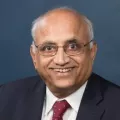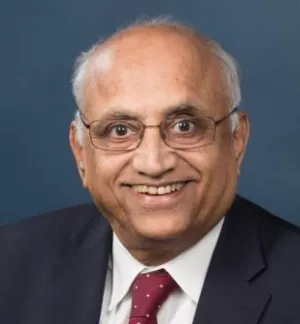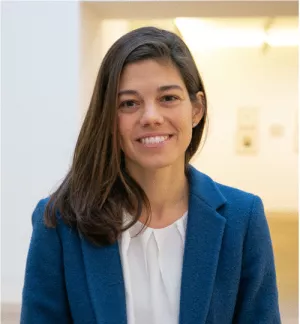Workshop Report
This report is a summary of a workshop that took place June 18/19, 2023 in Cambridge, UK. The workshop was hosted by the University of Cambridge's Cambridge Centre for Environment, Energy and Natural Resource Governance. The research project, ‘What factors drive innovation in energy technologies? The role of technology spillovers and government investment,’ was led by Professors Laura Diaz Anadon (University of Cambridge), Venkatesh (Venky) Narayanamurti (Harvard Kennedy School's Belfer Center for Science and International Affairs) and Gabriel Chan (University of Minnesota's Humphrey School of Public Affairs) as co-PIs.
The research project was funded by the Alfred P. Sloan Foundation.
Executive Summary
On June 18-19, 2023, the Cambridge Centre for Environment, Energy and Natural Resource Governance in the University of Cambridge hosted an in-person international Workshop entitled ‘Accelerating development of energy innovation ecosystems: strengthening links across institutions and actors.’ The Workshop was funded by the Alfred P Sloan Foundation as part of the research project ’What factors drive innovation in energy technologies? The role of technology spillovers and government investment’ led by Professors Laura Diaz Anadon (University of Cambridge), Venkatesh Narayanamurti (Harvard University) and Gabriel Chan (University of Minnesota) as co-PIs. The Workshop brought together researchers from the project and world-leading experts and scholars in energy technology and innovation policy, academic entrepreneurs, and policy makers from the UK, US, and the EU.
This report summarises the findings about the factors contributing to the successes and failures of energy innovation ecosystems identified by participants of the Workshop over a course of three panel discussions. The report provides a background for the following recommendations for action by national or regional policymakers in the UK and beyond to accelerate energy innovation through improvements in the energy innovation system put forward by participants as the key takeaways from the Workshop:
- Fill the gaps in the energy innovation system
- ● Create new or reform existing ‘National laboratory’-style R&D-oriented organisations with mission orientation, long-term planning horizons, cross-disciplinary expertise, block funding to support discovery research, and a focus on integrated scientific and technological research and development activities with clear links and pathways to manufacturing.
- ● Create new or reform existing actors and institutions responsible for providing early stage (and low-cost) finance and tasked with improving the bankability for the early deployment and commercialization of innovative clean energy technologies.
- ● Provide institutional support for technology demonstration, early deployment, and manufacturing scale-up.
- ● Foster the creation of institutions and public-private partnerships with a broad mandate for cross-sectoral and temporal coordination and integration of innovation activities across the life cycle of innovation.
- Strengthen the linkages in the energy innovation system and beyond
- ● Support cross-domain and cross-sectoral collaborations, consortiums, and industry groups to ensure knowledge exchange across the value chain of innovation to enable technology spillovers.
- ● Collaboratively work on an adaptive industrial strategy, standards, and necessary regulation early to help coordinate innovation activities across different actors, sectors, and time horizons.
- ● Encourage open innovation whenever possible, while being mindful of the limitations posed by intellectual property regimes and demands of national security.
- ● Encourage and support diversity and interdisciplinarity in education, training and hiring practices.
- Facilitate conducive government policy
- ● Ensure the consistency and continuity of funding and policy support while keeping it flexible and adaptive to changing environments.
- ● Support programmes that encourage diversity and interdisciplinarity in education, training, and talent mobility across countries, sectors, and knowledge domains.
- ● Establish new or modify existing policy instruments to support integrated scientific & technological research and development.
- ● Allow for flexibility in funding instruments and overlaps in their mandates to enable andsupport ‘risky’ R&D project proposals.
- ● Stimulate broader private sector participation in the financing of energy innovation.
- ● Involve the private sector in conversations about policy design.
- ● Track progress and adapt policies as we learn about their effectiveness.
- ● Learn from instructive experiences in other policy domains.
-
Change organisational and leadership culture
- ● Encourage long-term thinking about innovation as opposed to ‘short-termism,’ particularly in the government and industry.
- ● Support risk-taking leadership in all sectors, including academia and the government.
- ● Foster flexibility and organisational autonomy to take risks, change and adapt in all sectors.
- ● Promote positive societal framing of entrepreneurial risk and failure, including in the government.
- ● Stimulate creativity, imagination, curiosity, and serendipity by creating ‘safe spaces’ or ‘sandboxes’ for discovery research insulated from the pressures of public accountability, academic incentives, and shareholder capitalism.
- ● Foster nimbleness and adaptability in R&D, demonstration, and deployment.
- ● Change the linear thinking about innovation by policymakers, encouraging a whole- systems approach to innovation and competitiveness.
Kolesnikov, Sergey, Mengyao Han, Deyu Li, Thea Jung, Gabe Chan, Venkatesh "Venky" Narayanamurti and Laura Diaz Anadon. “Accelerating Development of Energy Innovation Ecosystems: Strengthening Links Across Institutions and Actors.” University of Minnesota, 11/1/2023
The full text of this publication is available via University of Minnesota.






